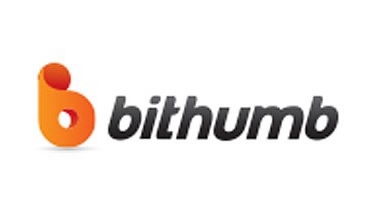
Business
14:34, 02-Oct-2017
South Korea joins global backlash against ICOs
By CGTN's Song Yuanyuan

South Korea just became the latest country to ban initial coin offerings (ICO), joining a global backlash against the popular fundraising platform.
South Korea’s financial regulator last Friday said it will ban raising money through all forms of virtual currencies, a move that follows similar restrictions in China on initial coin offerings (China issued the ban on September 4th).
South Korea, banning all ICOs outright
The Financial Services Commission said all kinds of ICOs will be banned as trading of virtual currencies needs to be tightly controlled and monitored, according to Reuters.
"Raising funds through ICOs seem to be on the rise globally, and our assessment is that ICOs are increasing in South Korea as well," regulators said in a statement following a meeting with the Bank of Korea and the National Tax Service, according to Reuters. "Stern penalties" will be issued on financial institutions and any parties involved in issuing of ICOs, the statement added.
South Korea is the world’s third largest bitcoin market. The popular Korean cryptocurrency exchange Bithumb just started offering zcash this week. The privacy-centric token counts Edward Snowden among its fans.

Bithumb logo
Bithumb logo
South Korea’s harsh stance also links to the North Korean hackers who attempted to steal bitcoin from South Korean exchanges as a means of avoiding increasingly punitive international sanctions, according to a report earlier this month from internet security group FireEye, the Financial Times reported.
"After all, ICO doesn’t reflect any characteristics of the real economy, it can’t be valued by any real assets either, the privately traded cryptocurrencies on the markets are not currency or any kind of financial product, plus with its high risks of cross-border fluidity, this creates big challenges for regulatory departments," Dr. Li Honghan, a research fellow at Suning Finance Research Institute explained to CGTN as to why China and South Korea have taken harsh stances on ICOs.
Switzerland, a more measured approach
In Switzerland, the Financial Market Authority (FINMA) issued a statement indicating that it will start investigating a number of ICO cases that possibly violate established financial regulations.
The Swiss regulator's announcement is significant, given that the country is perceived to take a progressive sandbox approach to financial technology. Switzerland also happens to be ICO central, the International Business Times wrote.
In the United States, last Friday, the Securities and Exchange Commission (SEC) found its first investigation target in Maksim Zaslavskiy, the promoter of two kinds of coins that were supposed to have been backed by real estate and diamonds, the New York Times reported. Earlier in July, the SEC warned that some of these offerings were likely to violate securities law, but the agency did not take steps against any specific offenders at the time.
Bad or good news to the Blockchain technology start-ups?
In the first nine months of the year, various projects raised over 1.5 billion US dollars from investors by selling new virtual currencies, according to ICB Insights Research. Reuters estimated the total cryptocurrency market is worth more than 180 billion US dollars.

Cryptocurrency Market Capitalizations from Jan 2017 until now, source from coinmarketcap.com
Cryptocurrency Market Capitalizations from Jan 2017 until now, source from coinmarketcap.com
As South Korea and Switzerland crack down on ICOs, this news could indicate a significant impact on the market of blockchain technology (which cryptocurrency is based on) startups.
"I think that the FINMA statements set exactly the right tone. The agency appreciates the innovative potential of ICOs and is cognizant of the groundbreaking implications of the technology ICOs are driving. This is great news for every company that actually wants to change the world by building the technology they stated and through that provide value to their token holders. This type of regulation will seed out fraudulent players, therefore reducing the level of noise in the ecosystem, and help legitimate companies rise to the top," Serafin Lion Engel, CEO of DataWallet was quoted by the media.
"Switzerland’s more measured approach to possible ICOS violations is more balanced while China and South Korea takes a harsher stance," Dr. Quqiang, a Fintech research fellow at the International Monetary Institute of Renmin University said. "As it leaves spaces and time for blockchain start-ups, under its the Sandbox regulation."
Worthy of mentioning, on Sunday, Dubai officially launched its own cryptocurrency development initiative called emCash, according to announcements by local news media. The cryptocurrency would be used for payment of governmental and nongovernmental services.
This move doesn’t conflict with other governments’ crackdown. After all, the cryptocurrency is issued by Dubai’s central government with supervision, unlike the privately-issued coins (including bitcoins) traded in the market without oversight, cryptocurrency can actually help better counter against money laundering, Ponzi schemes, and pyramid selling scams.
However, Dr. Qu holds reservations on the potential developments of Blockchains. Unlike some insiders who may elevate Blockchain technology to a significant breakthrough, he believes rather than a confirmed future technology, blockchain is nothing but a great early stage tryout. "But P2P and encryption based technology functions as block chain can only and truly mature in a real P2P internet. However, currently, all the WWW/Internet services are controlled by several major companies and organizations in a centralized way. A real P2P encryption and authentication technology must be based on distributed internet," he stressed.

SITEMAP
Copyright © 2018 CGTN. Beijing ICP prepared NO.16065310-3
Copyright © 2018 CGTN. Beijing ICP prepared NO.16065310-3